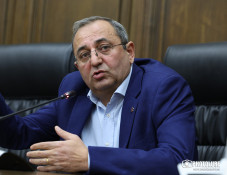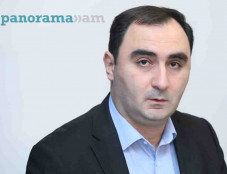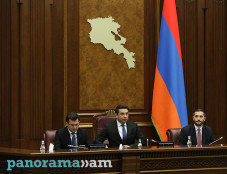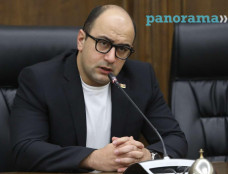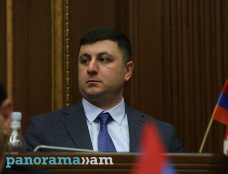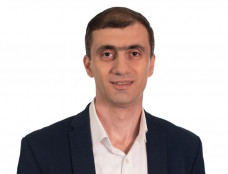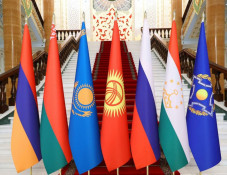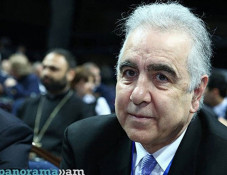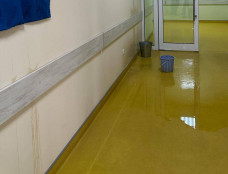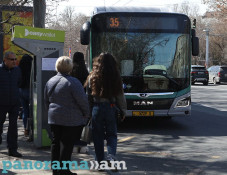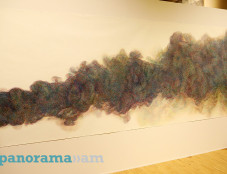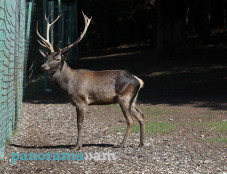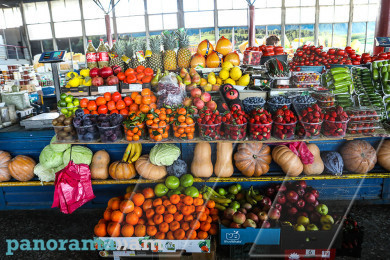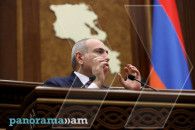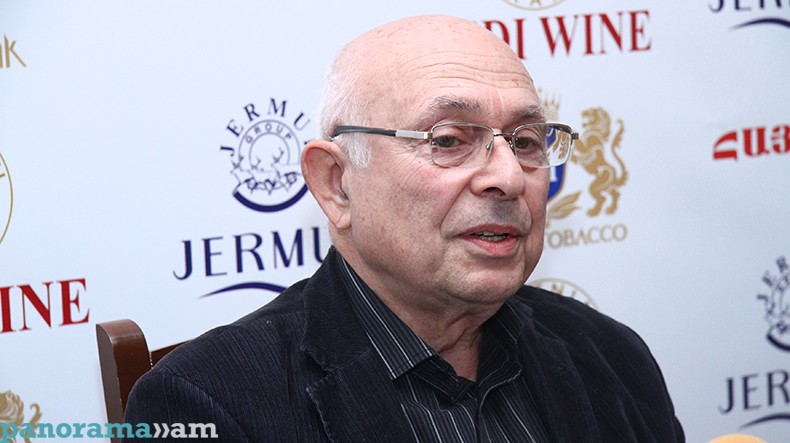
Historical and Geographical Falsifications of Azerbaijan. Rouben Galichian argues on aims of appropriating others’ history
The reason why the Azerbaijani historians have started to make researches of the history of their country is not the lack of a real historiography but the intention to appropriate someone else’s history and present a quite new history by falsifying it, famous cartographer Rouben Galichian writes in his book Historical and Geographical Falsifications of Azerbaijan, a historical, cultural and cartographical research based on a detailed analysis backed by documentary evidence.
Galichian cites Victor Schnirelmann, a well-known specialist on the history and identity of the peoples inhabiting the territories lying to the south of the Caucasus Mountains, who claimed that any newly formed country, which strives to legalise its existence, needs a history to help confirm its deep roots and its own unceasing historic culture. The historians of the newly formed country, Azerbaijan, too, since the moment of its creation, have consistently taken a tireless interest in their ancient and medieval history looking for the roots of their nation and statehood there.
“When political factors and political interests influence the historical science, it becomes a mighty power directly impacting the process of the formation of the nation and the national policy of the State. Today, historiography has become a politicised instrument in the scientific circles of Azerbaijan. It is first of all used for ethic consolidation,” Galichian writes.
In his book, Galichian points out that Azerbaijan is not the only country to use the method of ‘presenting figment as reality.’ As an example, he notes the practice of rewriting history in another newly formed state, USSR, which some Soviet historians tried to present as ‘an integral country united with numerous common features from time immemorial.’ A demonstration of such an approach was how the Azerbaijani historians continued that tradition distorting the history of the peoples who lived in the territory of their republic in the past, as well as the political units that existed there, presenting them as their own. As a result, a three-volume large academic edition titled The History of Azerbaijan was published, followed by more and more ‘scientific’ studies by many historians.
The author notes that Professor Stephan Astourian from Berkeley University (US) also touched the issue in his article ‘In Search of Their Forefathers: National Identity and the Historiography and Politics of Armenian and Azerbaijani Ethnogeneses.’ Referring to one of the studies by F. Mammadova, an Azerbaijani scientist historian, Astourian writes that he pursues the aim to view how the intelligentsia of the newly formed nation of Azerbaijan tries to create an imaginary past illustrated by the example of the Caucasian Albanians.
“Since the 1960s, the Azerbaijani authorities have entered upon a serious search of a historical past and ancient culture for their newly formed country. A huge work needed to be done and most serious problems to be solved to achieve that aim. Among them, the most difficult problem was probably to subject the neighbouring Armenian people’s past and culture to such distortions that their fabricated historical hypothesis about the ‘Ancient’ or ‘Great’ Azerbaijan having a rich history gradually became reality,” the author highlights.
Taking into consideration the Ottoman experience between 1915 and 1923, which showed that a physical extermination or liquidation of a nation – be it Armenian or any other – is impossible, a necessity rose to apply a new methodology. More precisely, it was necessary to distort the history and try to prove that the Armenians are not related to the memorials of the Christian culture in the territory of Azerbaijan and even in the Republic of Armenia.
However, it was impossible to consult historical sources and literature existing before 1918 in order to introduce the newly formed nation called ‘Azerbaijanis’ as an ancient ethnic community. Neither the Persian, nor the European sources, and not especially the local historians’ works contain facts about the existence of a country called ‘Azerbaijan’ situated to the north of Araks and ‘Azerbaijanis’ inhabiting it. “That is why no way was remaining other than creating a history using falsifications and non-existent ‘facts’ or appropriating the history and cultural heritage of others,” the author writes.
While it was easily possible to declare the Persian, Seljuk and other Muslim memorials in the territory of Azerbaijan as ‘Azerbaijani,’ the majority of the numerous Christian memorials on that territory indisputably belong to the Armenians, and the rest constitute the Christian Albanians’ cultural heritage. This was not acceptable for Azerbaijan, and an objective was set to change the historical reality in a way that would enable them to somehow connect the cultural memorials on the territory of Azerbaijan with the discovered ‘ancestors’ of its population.
In order to carry out that programme, it was necessary to prove that Azerbaijan’s modern-day population really takes its origins from the Caucasian Albanians and is their direct descendant. The Armenians, on the contrary, had to be turned into foreigners, who had come to the region. Backing those theories with ‘arguments’ would make it possible to define the Albanian culture and all the cultural memorials on the territory of Azerbaijan as Azerbaijani. Further, it was necessary to argue that all the Christian memorials and churches existing in the region are not Armenian but Albanian. “If those false theories were possible to prove, as well, it would mean that the Armenians had not participated in the creation of all the Christian memorials, monuments and structures in the territory of Azerbaijan to the north from Araks. This could already provide base to think that they totally belong to the Albanian culture and, accordingly, to the culture of ‘ancient and medieval Azerbaijan’ because the Azerbaijanis descend from Albanian tribes,” Galichian writes.
According to the cartographer, the above plan was put into action and numerous researches, books, articles, ‘proving’ those falsifications, have begun to be published in Azerbaijan since 1960s. “These include the works of Zia Buniatov, Farida Mamedova, Igrar Aliyev, Kamil Mamadzade, Davud Agha-oghli Akhundov, Rashid Geyushev and others. Meanwhile the Armenian names of old monuments and places were being altered and many indisputably Armenian monuments were gradually and quietly demolished,” the author writes.
According to Galichian, some historical, cultural and demographic ‘changes’ needed to be introduced in the existing historical sources and literature to carry out the plan. Galichian points to several directions in which the work was done.
First, the ethnic composition of the population, the natives of Armenia, Azerbaijan and Karabakh, Armenians, were to be turned into people who had resettled there only during the past two or three centuries and prove that the population of Albania, who lived in that territory since pre-Christian times and adopted Christianity, is the only progenitor of Azerbaijan’s people; claim that no nation other than the Albanians and Azerbaijanis inhabited that territory before the 19th century; present the people of the Iranian provinces Atrpatakan (Atropatena) and Ardabil as part of the people of Soviet Azerbaijan or the modern Azerbaijani Republic.
Second, distortion of the history of written culture and cultural memorials. Ague that all the churches, monasteries, khachkars and other Christian monuments were created by the Albanians; rename all the well-known Armenian and Persian figures, who have lived in some time in the territory of the modern Azerbaijan into Azerbaijanis, and introduce all the written cultural values created by them as a part of ‘the Azerbaijani culture’; call all the ancient mosques in Azerbaijan’s territory as ‘Azerbaijani’ even though their majority was constructed by the Persians.
Third, use and promote false topographic names. Make ‘Northern and Southern Azerbaijan’ historical names; keep the name ‘Northern Azerbaijan’ for themselves and give the name ‘Southern’ to the Iranian province ‘Azerbaijan,’ which was called Atrpatakan (Atropatena) in the past; declare the territory of modern Armenia as ‘Western Azerbaijan.’
“If the Azerbaijani historiographers and those who order them, that is, the former and current authorities, manage to prove the above theories, the greatest part of the Republic of Armenia, Artsakh, the territory of the Azerbaijani Republic, including the Iranian Atrpatakan, would constitute the ‘historical Azerbaijan.’ This is the true aim the Azerbaijani authorities pursue,” the author points out.
To be continued.
Born in Tabriz, Rouben Galichian is a descendant of refugees from Van who survived the Genocide. He received scholarship and studied engineering at Aston University, Birmingham (UK). Since in 1981, he started to study the rich cartographical heritage in the libraries of the UK and other European countries.
His first research, Historic Maps of Armenia (in English), was published in 2004. It was a collection of maps from various libraries and museums in the world, where Armenia was noted, beginning from the 6th century to the present times. His second book, Armenia in World Cartography, was published in Yerevan in 2005. The research ‘Countries South of the Caucasus in Medieval Maps. Armenia, Georgia and Azerbaijan’ (in English and Armenian) was published in 2007. The book The Invention of History (in English) was published in 2009. In his book Historical and Geographical Falsifications of Azerbaijan, published in 2013, the author details the reasons, aims and methodology of the falsification of the history of Azerbaijan and the countries of the region.
Related news
- Rouben Galichian unmasked falsification of history in Brenda Shaffer’s ‘‘research’’ on Azerbaijan
- MAPPING SPECIALIST COLLECTED LIST OF ANTI-ARMENIAN LITERATURE PUBLISHED IN AZERBAIJAN
Newsfeed
Videos





